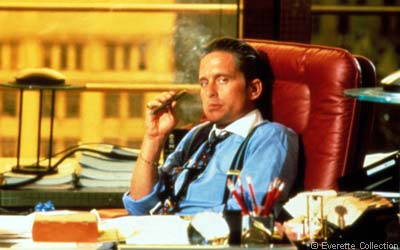I was bored today so I decided to make a speculative list of Barack's potential vice presidents cause that's what we're all about here at SYNJK, speculation. Some other outlets have taken a stab at it (
here,
here,
here,
here).
I made a pretty exhaustive list (over 40). I cut some cause they were too old and would be counterintuitive to Obama's change message (Sen. Chris Dodd, Sen. Tom Harkin, Sen. Bob Graham. Gen. Wesley Clark, Lee Hamilton). Some are too new on the scene (Gov. Bill Ritter, Gov. Chet Cuver, Sen. John Tester). Some don't have enough national star power (Gov. Phil Bresdesen, Gov. Chris Gregoire). Some have too much political baggage that would distract the campaign (Tom Daschle, Max Cleland, Sen. John Kerry, Michael Bloomberg, Gov. Bill Richardson). Some have worked too closely with McCain (Sen. Russ Feingold, Gov. Janet Napolitano). Some are too conservative (Sen. Bob Casey, Tim Roemer). Some are too black (Rep. Deval Patrick, Ray Nagin). Some have explicitly stated they are not interested (John Edwards, Sam Nunn, Sen. Ken Salazar). Some endorsed HRC (Gov. Ted Strickland, Sen. Barbara Mikulski, Sen. Evan Bayh). And some were just a little too out there (Tom Brokaw, Keith Olbermann, Bruce Springsteen, Tim Russert, Oprah, George Clooney).
So here is my (Obama's) short list (in no particular order):
Sen. Joe Biden - The Safe Bet Pros
Pros: The diminutive Democrat on foreign policy, one of Obama's weaknesses. His years on the Senate Foreign Relations Committee give him great self-confidence in dealing with international affairs and national security. He is very well liked in the Senate and would be a great resource in getting Obama's legislation passed. His reasoned rhetoric against neoconservatism would be a great asset on the campaign trail.
Cons: Not from a swing state, or a very populous state, Delaware, for that matter. He's a pretty cocky guy. It'd be hard for him to play second fiddle. I don't know about two Senators running together again; it didn't work out too well in 2004. His name is first on the list for Secretary of State.
Gov. Tim Kaine - The People's Champ Pros
Pros: Populist governor from a state, Virginia, that I feel will play a pivotal role in the election. Endorsed Obama very early in the campaign. He was a Catholic missionary and is very vocal about his faith; this would be a great asset among a group that Obama is struggling with, Catholics. Notoriously tough on crime.
Cons: Relatively conservative. He and Obama might have a tough time agreeing on some social issues (abortion, same-sex marrige, etc.). He doesn't bring anything new to the table aside from being from the South. He went to Harvard Law School like Obama and worked as a community organizer after law school like Obama. He's relatively new to politics. He doesn't bring a lot of experience to compliment Obama's lack of experience.
Gov. Kathleen Sebelius - For The Ladies Pros
Pros: Another popular governor from a traditionally red state. Endorsed Obama early. As a woman, she could quell some of this ridiculous notion that the election was sexist. She has a great record as governor (she eliminated the $1.1 million debt she inherited when she became governor without raising taxes). She is another voice for change and would effectively push Obama's message of change. Her presence will fundamentally change the electoral map.
Cons: I'm a little apprehensive of a rainbow coalition type ticket. If a black man running as president will be tough for some voters, a woman VP won't help their confidence. A lot of people are questioning her speaking skills (she botched the Dem's State of the Union response). This could be a liability during the campaign.
Sen. Jim Webb - The Fire Ball Pros
Pros: Like Kaine, he is popular in his home state of Virginia, which would make that state easily blue. He's a decorated Vietnam veteran and his son served in Iraq which would compliment Obama's lack of military experience. He served as Secretary of the Navy during the Reagan administration. He has been a vocal and credible opponent of the war in Iraq. He's an excellent campaigner (ran a great campaign for the Senate in 2006). He got busted for bringing a gun into the Senate (instant credibility among 2nd amendment proponents). He got the highest approval percentage out of 15 VP candidates during
an exit poll after the NC and Ind. primaries
Cons: He hasn't even endorsed Obama yet (or Clinton). He has also publicly stated that he's not interested in the position.
Ret. Gen. Anthony Zinni - The Godfather Pros
Pros: His military experience instantly transforms Obama's campaign. He now has a great shield against Republican attacks against his lack of military knowledge or national security. He would be a great liaison between the president an the military. Zinni is a special position because he is a vocal opponent of the war in Iraq and even said that his vote for Bush in 2000 was a mistake. IMHO, this guy would immediately undercut any inroads McCain made on national security and would propel Obama to the White House.
Cons: I firmly believe that the president should not be a former high ranking military official. The Commander in Chief is a civilian for specific reasons. There needs to be civilian control of the military. Also, many Washington insiders wanted him to be Kerry's VP in 2004, but he vehemently stated his desire to not hold public office. He is also being tossed around as a McCain VP.
SYNJK's Dark Horse Special...
Rep. Robert WexlerPros: He's from Florida and very popular in Florida. This would help cure the rift caused by the DNC not counting Florida's delegates. He's also popular within the Jewish community and a staunch supporter of Israel. Obama has struggled with gaining the support of the Jewish community. His personable style would be a great asset on the campaign trail. He's a voice for change within Congress and would be a great advocate of Obama's message. He voiced his support for Obama early in the campaign.
Cons: He's kind of a greenhorn on the political scene. He admitted to doing cocaine, because "it's a fun thing to do." Actually, that kind of honesty could be a pro.
I feel like any of those people would be great Veeps and help Obama win the election. Some people feel that the VP choice is overrated. I partly agree. There is no question that people vote for a president, not a vice president. However, the choice of VP can tell you a lot about a presidential candidate's character. It is public knowledge that during the 2004 campaign, Kerry wanted his old friend Dick Gephardt to be his VP, but he was persuaded by his advisers and the polls to choose John Edwards. Not to take anything away from John Edwards, but this encapsulated Kerry's entire campaign. Kerry lacked the conviction to be president. He should have gone with what he knew to be right. He wasn't going to win North Carolina. He would have been better served by showing voters that he will do what he believes in, not what the polls are saying.
 This week's Gangster is Obama's "Chief of Stuff" Reggie Love. He is Obama's right-hand man and personal aide. NY Times profiles him here. He helps Obama with everything and anything (besides policy). He plays a one-on-one basketball game against Obama at noon on every primary day. The guy can ball; he played football and walked on the basketball team at Duke. The NY Times article makes reference to some not so flattering photos taken of him while at Duke. God bless Gawker for finding them [NSFW]. His most important accomplishment is introducing Obama to Jay-Z, which turned into the most gangster moment of the campaign. "'So I’ve gotten pretty fond of Jay-Z,' Mr. Obama said. 'He’s broadened my horizons in the hip-hop world.'" Reggie Love, you are SYNJK's Gangster of the Week.
This week's Gangster is Obama's "Chief of Stuff" Reggie Love. He is Obama's right-hand man and personal aide. NY Times profiles him here. He helps Obama with everything and anything (besides policy). He plays a one-on-one basketball game against Obama at noon on every primary day. The guy can ball; he played football and walked on the basketball team at Duke. The NY Times article makes reference to some not so flattering photos taken of him while at Duke. God bless Gawker for finding them [NSFW]. His most important accomplishment is introducing Obama to Jay-Z, which turned into the most gangster moment of the campaign. "'So I’ve gotten pretty fond of Jay-Z,' Mr. Obama said. 'He’s broadened my horizons in the hip-hop world.'" Reggie Love, you are SYNJK's Gangster of the Week.





















